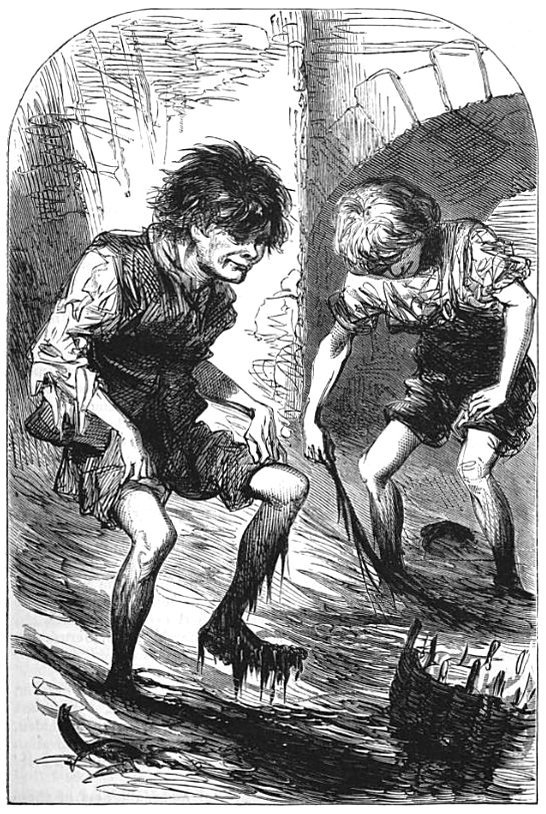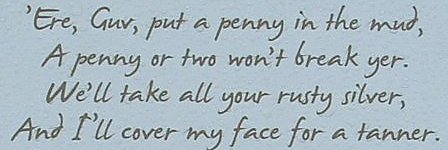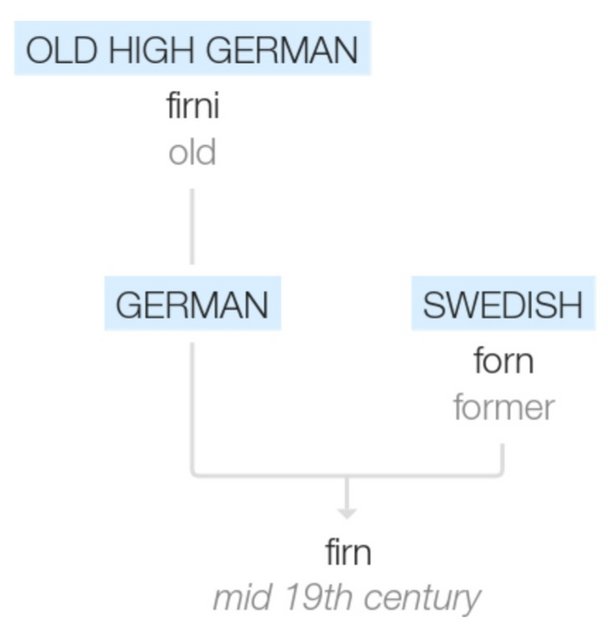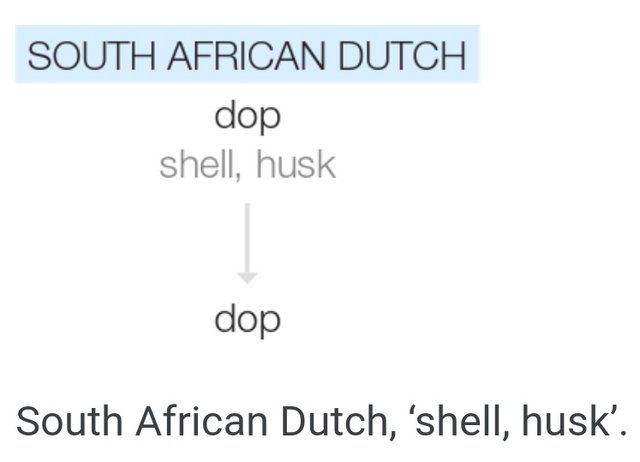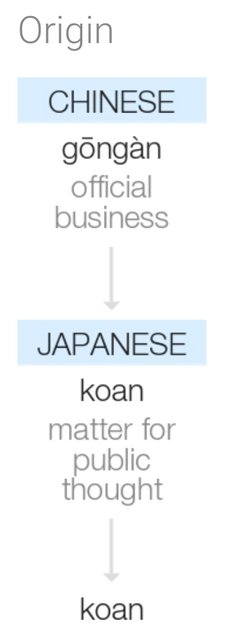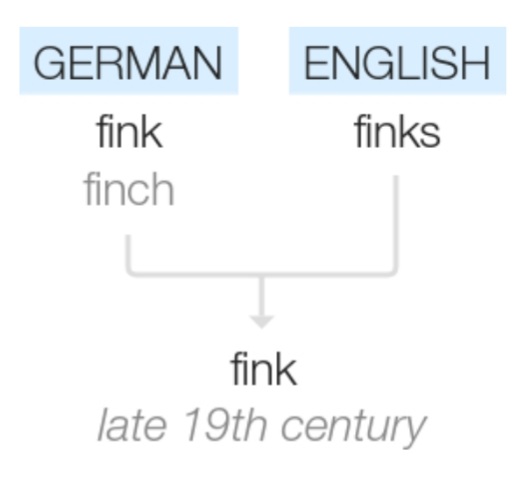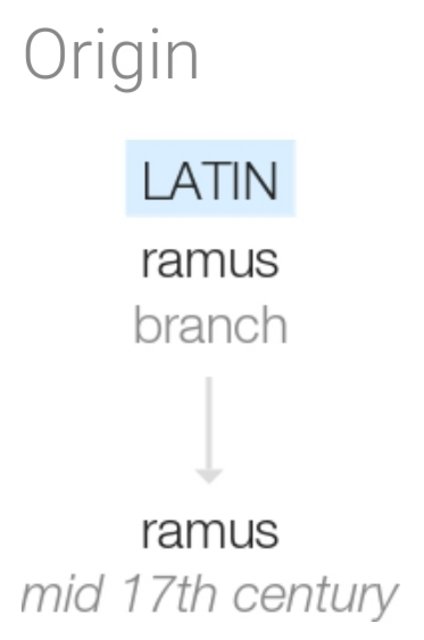New words appearing in the Oxford English March & April 2020
- anti-suffragism, n.: “Opposition to the extension of the right to vote in political elections to women; the political movement dedicated to this.”
- infodemic, n.: “A proliferation of diverse, often unsubstantiated information relating to a crisis, controversy, or event, which disseminates rapidly”
- archicembalo, n.: “Any of various types of harpsichord having more than twelve keys to the octave and therefore capable of producing intervals smaller than a semitone”
- Argonautical, adj.: “Of, relating to, or likened to the Argonauts. Cf. Argonautic adj.”
- baff, n.2: “A slipper; = baffie n. Usually in plural.”
- bampot, or bamstick, n.: “A foolish, annoying, or obnoxious person; (also spec.) a belligerent or disruptive person. Often as a contemptuous form of address.”
- bawbag, n.: “The *******. Cf. ball bag n. 2.”
- bealach, n.: “A narrow mountain pass.”
- bigsie, adj.: “Having an exaggerated sense of one’s own importance; arrogant, pretentious, conceited.”
- biofortification, n.: “Treatment of seed with microorganisms such as nitrogen-fixing bacteria in order to improve the growth of subsequent seedlings. rare.”
- bok, n. and adj.: “South African.”
- bosie, n.1: “A person’s bosom.”
- bowf, n. and adj.: “An unpleasant smell; a stink. Also figurative.”
- bowfing, adj.: “Foul-smelling, stinking. Also more generally: unpleasant, horrible.”
- cannabutter, n.: “Butter infused with cannabis, used as an ingredient in cannabis edibles such as cookies and brownies.”
- chipmunky, adj.: “Resembling or characteristic of a chipmunk, typically with reference to a person having prominent cheeks or a perky, mischievous character.”
- chuddies, n.: “Short trousers, shorts. Now usually: underwear; underpants.”
- Cohee, n.: “An inhabitant of the mountainous regions of western Virginia (including present-day West Virginia), being typically of Irish, Scottish, or German”
- coorie, v.: “intransitive. To crouch, stoop, or keep low, esp. for protection. Usually with down, in.”
- dorgi, n.: “A dog cross-bred from a dachshund and a corgi; such dogs considered collectively as a breed.”
- doxa, n.: “Opinion or belief; spec. the body of established or unquestioned attitudes or beliefs held generally within a particular society, community, group”
- Eutheria, n.: “With singular agreement: an infraclass of mammals comprising those in which the females develop a placenta (as distinguished from marsupials”
- exomoon, n.: “A natural satellite orbiting an extrasolar planet.”
- extubate, v.: “transitive. To remove a previously inserted tube from (a patient). Also intransitive: to perform this procedure. Cf. extubation n., intubation n.”
- fantoosh, adj.: “Fancy, showy, flashy; stylish, sophisticated; fashionable, exotic. Often used disparagingly, implying ostentation or pretentiousness.”
- farro, n.: “The hulled grains of any of several types of wheat, spec. emmer, spelt, and einkorn, typically used in salads, soups, etc. Also: a plant producing”
- febrous, adj.: “Affected with or characterized by fever; causing or indicative of fever; feverish. Often figurative or in figurative contexts. Cf. febrile adj.”
- geggie, n.2: “A person’s mouth. Frequently in shut your geggie: ‘be quiet’, ‘shut up’.”
- gramadoelas, n.: “A remote rural region; the backwoods, the ‘sticks’. Cf. bundu n.”
- grullo, adj. and n.: “Designating a horse having a coat of a grey or greyish-tan colour with a darker head and stripe along the back and a dark mane and tail.”
- hensopper, n.: “Originally: a Boer who surrendered to the British during the Boer War (1899–1902). Now also in extended use: a person who surrenders or who gives up”
- hok, n.: “An enclosure for domestic animals. Frequently with modifying word specifying the type of animal being kept. Cf. hokkie n. 1.”
- imbizo, n.: “A meeting, an assembly; esp. a gathering of the Zulu people called by a traditional leader. Cf. kgotla n. 2.”
- isicathamiya, n.: “A style of unaccompanied singing originating amongst rural Zulu male choirs.”
- jibbons, n.: “With plural agreement. Spring onions.”
- Jozi, n.: “A nickname for: the city of Johannesburg.”
- kanna, n.: “A South African succulent plant having white and yellow flowers with narrow, threadlike petals, Sceletium tortuosum (family Aizoaceae), the roots”
- Koevoet, n.: “A paramilitary counter-insurgency unit of the South African police force, deployed in South West Africa (now Namibia) from 1979 until 1989.”
- lekgotla, n.: “An enclosure or public space where community assemblies take place; = kgotla n. 1.”
- MacGyver, v.: “transitive. To construct, fix, or modify (something) in an improvised or inventive way, typically by making use of whatever items are at hand”
- makgotla, n.: “A traditional court of law consisting of village members; (in later use) a people’s court convened in a township; = lekgotla n. 2.”
- maltipoo, n.: “A dog cross-bred from a Maltese terrier and a miniature or toy poodle; such dogs considered collectively as a breed.”
- misgender, v.: “transitive. To assign the wrong grammatical gender to (a word). rare.”
- mobula, n.: “More fully mobula ray. Any of various rays of the genus Mobula (family Myliobatidae), typically having a ventral mouth and lacking a spine”
- neurostimulator, n.: “Any of various devices used to stimulate nerves or neural tissue by means of electrical current, for experimental or therapeutic purposes.”
- puggle, n.2: “A dog cross-bred from a pug and a beagle; such dogs considered collectively as a breed.”
- rooked, adj.: “Originally: deprived of money through fraudulent or underhand means; swindled, fleeced. In later use also (chiefly Scottish): without money”
- Santee, n.1 and adj.: “A member of a Sioux people living chiefly in parts of North and South Dakota, Minnesota, Nebraska, and Manitoba; = Dakota n. 1.”
- sithee, v.: “intransitive. Used to represent the words (I’ll) see thee, in expressions of farewell: ‘(I’ll) see you’. Usually with ellipsis of subject”
- Sitkan, n. and adj.: “A member of a tribe of the Tlingit whose former territory was on the western side of Baranof and Chichagof islands in the Alaska Panhandle”
- sitooterie, n.: “A secluded area within a building where people can sit apart from others; an alcove, recess. Now rare.”
- sit-ski, n.: “A ski with a seat fitted on top; spec.: one designed to be used by skiers with limited or no mobility in their legs.”
- Sitt, n.: “In Arabic-speaking contexts: a woman, a lady. Chiefly used as a title or form of address preceding a name.”
- situatedness, n.: “The quality of being situated (in various senses).”
- situpa, n.: “In Southern Rhodesia (subsequently Zimbabwe) and Northern Rhodesia (subsequently Zambia): an official document issued by the government to black…”
- Sitzprobe, n.: “In opera and musical theatre: the first rehearsal where the singers and the full orchestra perform together, without sets or costumes”
- skunked, adj.: “Drunk, intoxicated. In later use also: under the influence of marijuana (cf. skunk n. 3). Chiefly in predicative use.”
- spiritoso, adv., adj., and n.: “As a musical direction: in a lively or spirited manner.”
- spret, v.: “transitive. To tear, split, or burst (esp. a seam, etc.); to unravel. Frequently with down, up. Also intransitive.”
- sprit, n.4: “A sudden quick movement; a spring, jump, leap.”
- spritty, adj.1: “Of linen, or yarn spun from flax: containing particles of woody tissue which appear as dark flecks; containing sprit (sprit n.3).”
- spritzer, n.1: “Any of various implements used to spray or squirt a liquid; esp. a spray bottle or atomizer. Frequently attributive or as the second element in…”
- spritzy, adj.: “Effervescent, fizzy, bubbly; spec. (of a wine) slightly sparkling or semi-sparkling (cf. spritzig adj.).”
- sprog, v.: “transitive. Of a man: to get (a woman) pregnant. rare.”
- sproglet, n.: “A baby or small child. Cf. sprog n. 2.”
- sproing, int. and n.: “Representing the reverberating sound made when a compressed spring is suddenly released. Also as n. Cf. boing int. n.2”
- sprucey, adj.: “Covered with or characterized by spruce trees; resembling or having the characteristics of the spruce. Also: characterized by the aromatic smell”
- spruggie, n.: “The house sparrow. Cf. sprug n., spuggy n.”
- sprunt, v.2: “intransitive. To pay romantic or amorous attention to a person; (also, with after) to seek to gain the affections of a person.”
- tittie, n.2: “A young woman, a girl, a lass.”
- tittling, adj.1: “That tickles or itches. Cf. tittle v.2”
- tityra, n.: “Frequently with distinguishing word. Any of several passerine birds constituting the tropical American genus Tityra, typically having pale grey…”
- translocate, n.: “A substance that is or has been moved by translocation, esp. within the phloem vessels of a plant. Cf. translocate v. 2.”
- ube, n.: “A variety of yam (species name, Dioscorea alata) producing tubers with purple or white flesh, esp. used in Filipino cookery. Also: a tuber of such a…”
- Weegie, n. and adj.: “A native or inhabitant of Glasgow; a Glaswegian.”
- Yat, n. and adj.: “A regional dialect or accent of New Orleans, traditionally associated with white working-class people in districts such as the Irish Channel and the…”
- yebo, adv. and n.: “Used to express affirmation, assent, or agreement: ‘yes’. Also occasionally as n.: an utterance of ‘yebo’. Frequently in representations of South…”
- zir, pron.: “Used as a gender-neutral third person singular objective pronoun, corresponding to the subjective pronoun ze (see ze pron.). Cf. zir adj.”
- zir, adj.: “Used as a gender-neutral possessive adjective (determiner), corresponding to the subjective pronoun ze (ze pron.). Cf. zir pron.”


